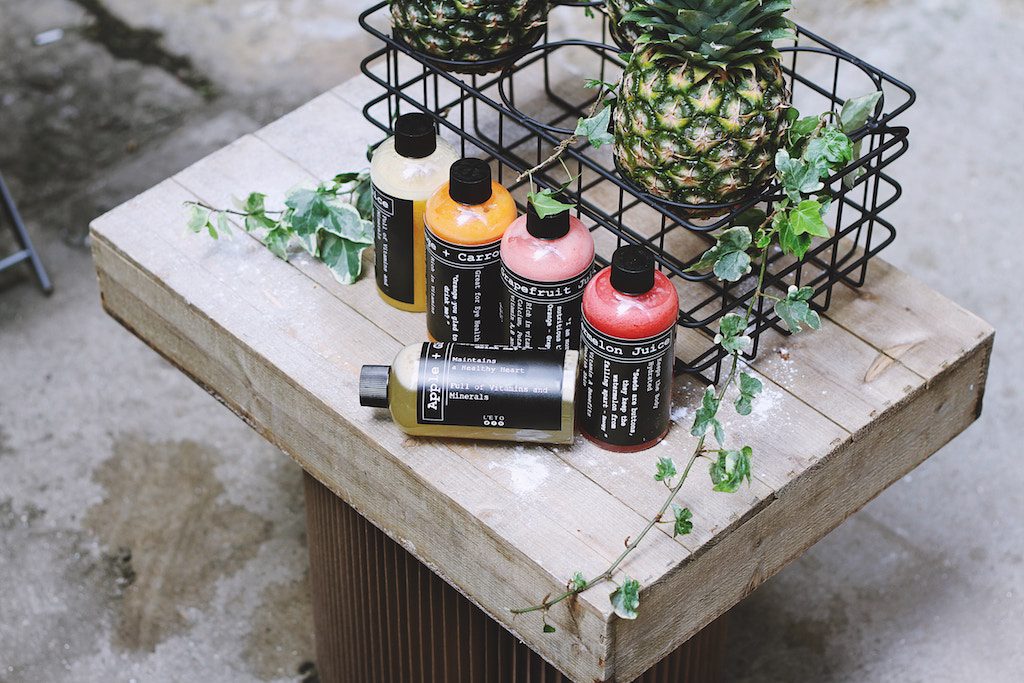Skift Take
Keeping up with the demand for wellness isn’t just a good idea — it’s essential for companies that want to continue to lead their respective categories.
 The Skift Wellness newsletter is our weekly dispatch focused on what’s happening in wellness from a global business standpoint. Skift Wellness lives where wellness meets commerce, mindfulness meets technology, the yoga studio meets the boardroom, and health meets business.
The Skift Wellness newsletter is our weekly dispatch focused on what’s happening in wellness from a global business standpoint. Skift Wellness lives where wellness meets commerce, mindfulness meets technology, the yoga studio meets the boardroom, and health meets business.
Sometimes you don’t want to mess with a good thing. But because the surging wellness movement is redefining most industries –– from food and beverage to travel and beauty –– smart companies are realizing that in order to excel in a changing space, they must either adapt their existing product lines or offer new ones.
Take Chobani, the leader of the U.S. yogurt market. The company realized early that excitement over Greek yogurt has waned and people have begun turning away from dairy products. In response to this, the company recently launched a new coconut-based yogurt line to appeal to dairy-free fans and capitalize on the growing demand for plant-based alternatives in the yogurt space. Though the line is a departure from what brought the company its initial success, Chobani realizes that if it wants to continue to grow, it’s a risk worth taking.
“We have dairy in our veins for sure,” Peter McGuinness, Chobani’s chief marketing and commercial officer, told Fortune. “But there’s this emerging non-dairy part of the yogurt aisle that’s here to stay.”
Hilton is also getting creative. It just opened London’s first vegan-only hotel suite in an effort to appeal to the wellness-minded traveler. As more hotel companies like Hyatt make wellness a core value, it’s wise for a brand like Hilton to find ways to get in on the movement, too. However, it’s unclear whether this will be a one-off stunt or a new category for the brand. Regardless, any innovation around well-being is likely good for business, even if it’s just a marketing move.
Other companies are hitting the market with interesting approaches: The Wrecking Club, Rage Ground, and other “anger rooms,” looking to cash in on America’s stressed-out state, and Ambrosia, a controversial “young blood” transfusion startup that’s hoping to break into the biohacking sector.
While tactics can range from clever to creepy, we’ll continue to follow the inventive ways companies continue to capitalize on the ever-growing wellness movement.
For feedback or news tips, reach out via email at [email protected] or tweet me @lesliebarrie.
— Leslie Barrie, Wellness Editor
Food & Drink

Chobani Looks Beyond the Cow With Its New Coconut Yogurt Line: As we reported in our Skift 2019 Wellness Megatrends, plant-based milks and yogurts are on the rise. So it comes as no surprise that Chobani, the largest yogurt brand in the U.S., would want in on the non-dairy action. Its new line, which includes nine coconut-based yogurts, looks to reach not just vegan and lactose-intolerant customers, but also the 17 percent of customers who say they are eating less dairy as a means to improve their health (according to a Mintel report). At a time when growth of the yogurt market is beginning to slow, this non-dairy line could be a bright spot for Chobani.
Travel
Is Hilton’s New Vegan Suite a Gimmick or a Good Idea? Don’t expect to find leather couches or prosciutto in the minibar at the Hilton London Bankside’s newest suite. Instead, its 100 percent vegan room is decked out in all things plant-based, from the toiletries and bedding, to the key cards and minibar offerings. Hilton consulted with The Vegan Society to get the group’s thumbs up on the selections. It could just be a short-lived attempt to drum up buzz, but if it gets enough of it, it might be a smart strategy to attract a wellness crowd. And if the suite stays booked, Hilton may want to roll out such rooms in other vegan-friendly destinations, like Los Angeles and New York City.
Airbnb Sees Rapid Growth in Wellness Experiences: While not all travelers want to take a trip that’s solely focused on wellness, many do want moments of well-being interspersed throughout their holiday. Case in point: Airbnb saw its wellness experiences, like meditation and yoga, book at an accelerated pace last year. Mexico saw the biggest growth in bookings (with a 2,100 percent increase over the past year), followed by countries including Canada, Spain, Cuba, and Italy. If Airbnb’s data is any indication, wellness travel will likely continue its upward trajectory in the years ahead.
Mind & Body
You Can Now Pay to De-Stress by Breaking Things: If you’ve ever had the chance to demo a kitchen (or even just pop some bubble wrap), you know that destroying tangible objects can be a stress release. And in these tense times, companies like The Wrecking Club have started capitalizing on it by creating “anger rooms,” where customers don a pair of goggles, a helmet, and gloves, and take a hammer to old TVs, ceramics, and more (for a fee, of course). The big question is whether the practice is actually self-care, or, as psychologists worry, a potentially destructive way to cope with stress and anger.
CBD
Cannabis Company Tilray Makes Revenue-Sharing Deal With Authentic Brands Group: How would you like some CBD ointment for that tennis elbow? You might soon be able to get your hands on Prince Tennis-branded CBD balm, thanks to a new revenue-sharing partnership between Tilray Inc., a British Columbia-based cannabis producer and supplier, and Authentic Brands Group, which owns more than 50 apparel and footwear brands, like Prince Tennis, Nine West, Nautica, and Spyder. It’s a smart move for Tilray to quickly get its CBD products into the U.S. retail market, and the partnership will likely give Authentic Brands Group a revenue and relevance boost.
Athleisure
Lululemon Looks to Expand Its Men’s Business: Even though Stuart Haselden, Lululemon’s chief operating officer, considers its men’s line “a bit of a secret,” this sector of the business is anything but. The athleisure brand is ahead of its goal to reach $1 billion in men’s sales by 2020, and 30 percent of its new customers are men. Still, with competitors like Nike announcing a men’s yoga line, Lululemon has looked to beef up these sales. It recently launched a capsule collection for high-end men’s retailer Mr. Porter and is expanding the size of the men’s space in more stores (which, according to Haselden, has increased sales by as much as 100 percent in those particular stores). We’ll see if its men’s line stays a “secret” for long.
Health & Medicine
This Silicon Valley Startup Charges $8,000 for Young Blood Transfusions: Ambrosia, a controversial new biohacking company that takes blood from young, healthy people and transfuses it into the veins of the aging, is now up and running in five U.S. cities. The startup hopes the procedure will rejuvenate older people’s organs, though it hasn’t released its clinical trial results and there isn’t evidence proving the treatments are beneficial. Still, blood transfusions are routine in the U.S., so there are few hurdles in terms of safety –– and its current waitlist reveals customers are curious about finding the next fountain of youth.
Skift Wellness Editor Leslie Barrie [[email protected]] curates the Skift Wellness newsletter. Skift emails the newsletter every Thursday.
The Daily Newsletter
Our daily coverage of the global travel industry. Written by editors and analysts from across Skift’s brands.
Have a confidential tip for Skift? Get in touch
Tags: airbnb, hilton, Skift Wellness, wellness
Photo credit: An array of juices are shown. Brands are getting creative to get it on the growing consumer wellness trend. @heftiba / Unsplash
